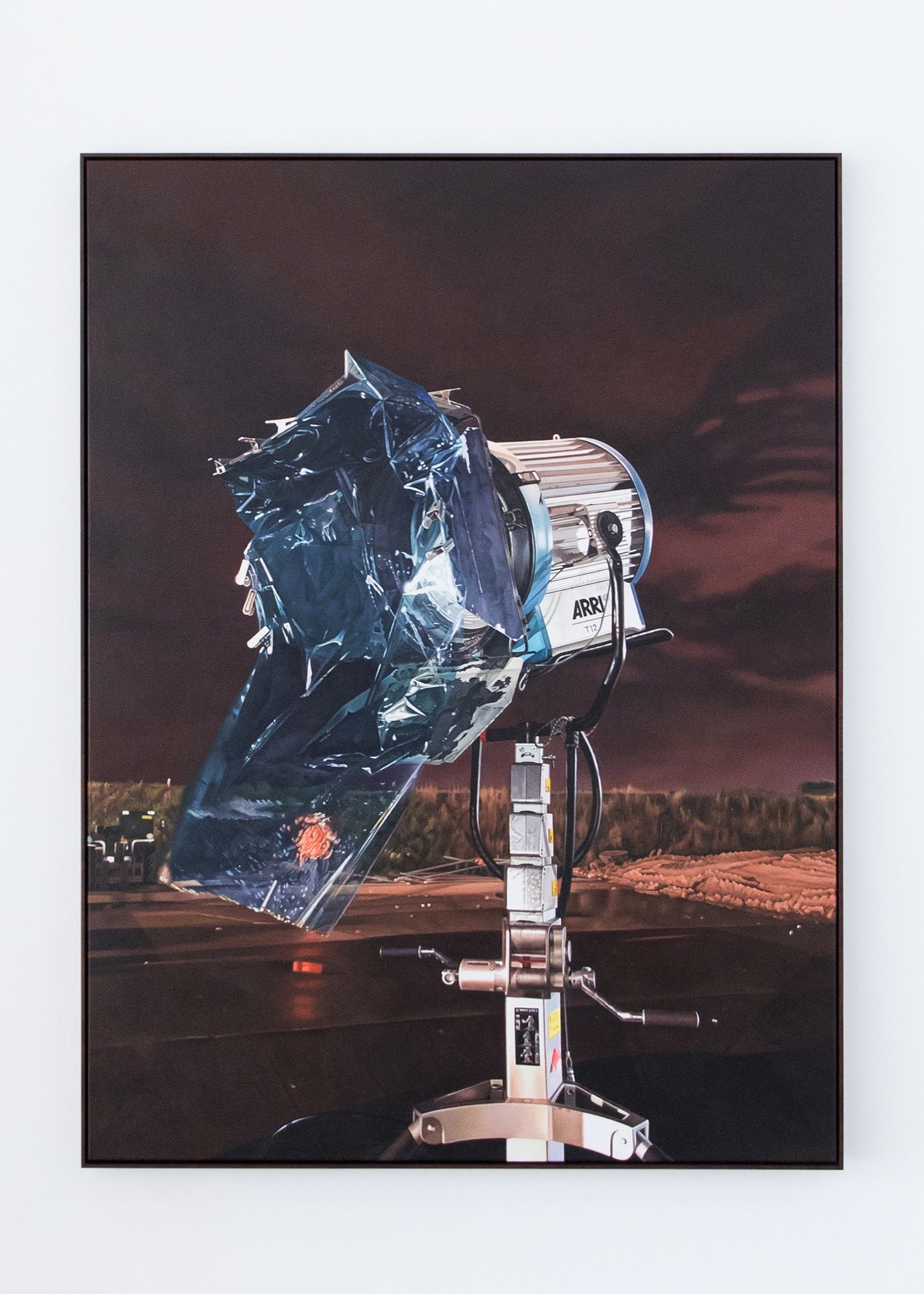“Friendly Reminder”: BRITTA THIE is Homeward Bound in the Penultimate Episode of “Translantics”
Berlin-based artist and model BRITTA THIE's web series Translantics wraps up its six episode run next week. In its penultimate episode, entitled “Friendly Reminder,” we follow Thie as she travels back to visit her relatives (played by her real-life family). The episode, which was co-directed by Julia H. Burlingham and features music by Ville Haimala, premieres here alongside an excerpt of 032c editor-at-large Carson Chan’s text on the series, taken from the latest issue of Texte zur Kunst.
The Latin prefix trans has become an emblem of recent times. As transgender people become evermore accepted through their visibility in popular culture (e.g., Caitlyn Jenner), new conversations begin about transracial and transethnic identities (e.g., Rachel Dolezal), and digital media has all but made transnationalism the status quo. Imbuing any condition or concept with the ability to surpass itself, trans dislodges fixed meanings, bringing our perception beyond, across, and through established categories. Britta Thie’s “Translantics” (2015) is a six-part web series co-produced by Arte Creative and presented as the inaugural project of Schirn Kunsthalle Frankfurt’s Digital Art Zone, an initiative to present artwork “that would not be possible without the invention of the Internet and digital technologies.” Following in the path of the Whitney Museum’s Artport (2002), and Serpentine Gallery’s Digital Projects (2014) – platforms dedicated to commissioning and exhibiting art online – the Digital Art Zone signals both a desire to expand Schirn’s artistic remit beyond what it can physically show in Frankfurt, as well as perhaps an acknowledgement that, for many, the computer screen has become a primary site for worldly interaction. As a form, the web series – as with any television series streamed online – evokes a dispersed audience, not connected spatially in a cinema, gallery, or theater, but through commonalities of interest, social attachments, and cultural ties.
“Translantics,” written, directed, and starring Thie (b. 1987), brings us into the lives of three young women working in Berlin’s creative industries. The on-screen characters are close variants of the actors’ off-screen lives. A Berlin-based model and artist, Thie plays the series’ main character, Bibi, a Berlin-based model and artist. Julia Zange, meanwhile, an actress and writer IRL – known for her well-received debut novel “Die Anstalt der besseren Mädchen” (Suhrkamp, 2008) – plays Yuli, a writer. And producer/writer Annika Kuhlmann, as Annie, acts as the series’ “startup hottie,” epitomizing the Berlin creative millennial: she complains about being dragged to gallery openings (but acquiesces in the end); she waxes assertively about robot intelligence and cloud governance in bed with her artist lover. The three switch unconsciously between German and English as they encounter others in their social network. Their world is one that purports to value the transcendence of national identities, sexual orientation, professional hierarchies, and perhaps the most pedestrian of categories, language. Their success or failure in achieving this as they negotiate seemingly conventional gender and social codes, set in relief against the post-Internet aesthetics of the show, creates a productive tension that, in part, comes to define it. Of all of these aspects, however, it is language that seems to depart most significantly from the standard fair: metered verse appears now and again in the dialog or voiceover, while slogans and catchphrases are interspersed with improvised exchanges. At the same time, the main characters are white, middle-class, and conform to conventional gender codes. Embodying the shorthand for normative in pop culture, these characters, however wittingly, seem to propose that in a world of hybridity, there is, in fact, a marked pressure to self-minoritize, to be trans.
As in Thie’s life and work, personal transformation in “Translantics” is given an audience: us. The condition of living between languages, between the immediacy of digital communication and the presence of the physical, between personal and professional goals, and between the private and the commodified self, is presented as a narrative, and thus necessarily held at a distance from the viewer. Yet deep relationships are often formed between viewers and serial dramas. The longer we watch something, the more our lives take on elements from the lives represented. In the fifth episode of “Translantics,” Bibi returns to her hometown, Minden (which is also Thies’s hometown), to visit her family, played by Thie’s own relatives. What unfolds is a failed communion of her past, present, on-, and off-screen selves. Fashionably dressed, an alien figure amid habitués, Bibi’s attempt to meet up with childhood friends finds her alone and stranded at the bar. What use does Bibi’s past have for her present? What use does one version of oneself have for another? In “Translantics,” perhaps what Thie exhibits is the confrontation between cultish hyper-individuality and the self-multiplying contemporary desire to affect or trans the other. At the same time, the series affirms that the space separating fiction and reality is an imagined one, useless to people who contextualize themselves comfortably in limbo between established categories, perpetually in transition.

